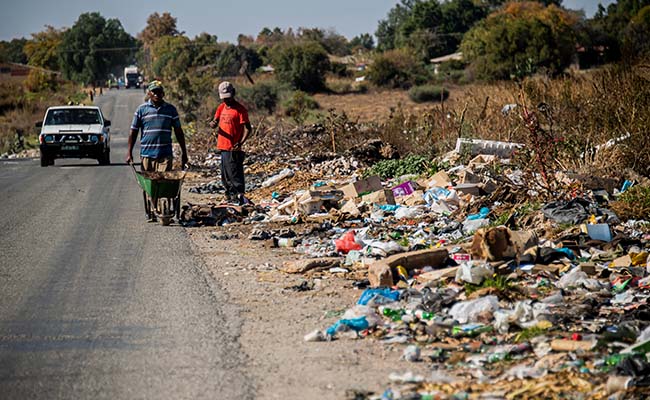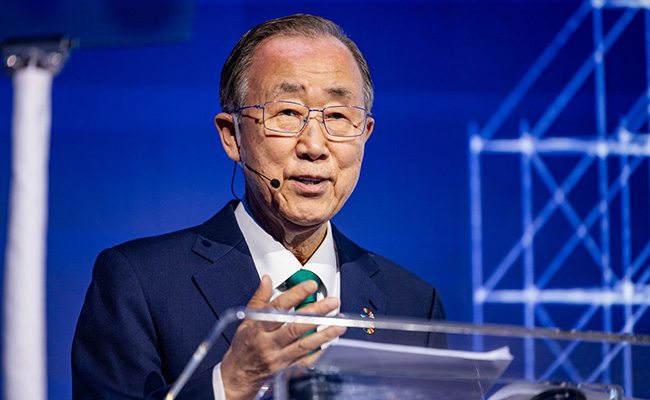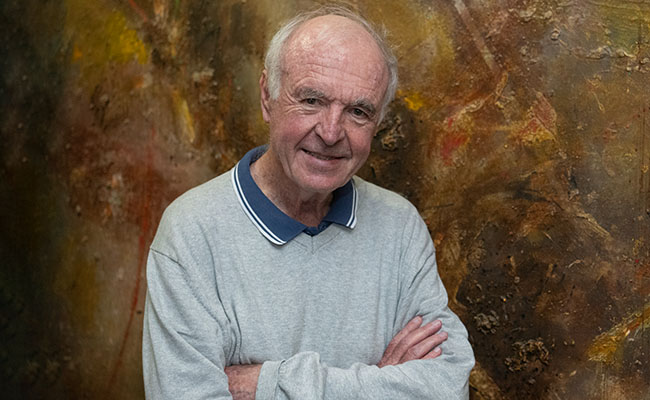There are, infuriatingly, innumerable towns now jostling for the title of most defunct in South Africa, but Lichtenburg in the North West province, run by the Ditsobotla municipality, must rank as one of the most grisly examples of state failure.
While President Cyril Ramaphosa has publicly called it “a horror story”, his failure to intervene – alongside finance minister Enoch Godongwana and water and sanitation minister Pemmy Majodina – is why business community group Sakeliga is pushing for personal cost orders against them unless they urgently take responsibility for the recovery of the collapsed municipality. It’s part of a bigger picture of community fightback, says Sakeliga CEO Piet le Roux, who spoke to Currency.
First, what is Sakeliga’s motion and what are National Treasury, the presidency and province opposing, exactly?
Our motion is that the courts should order national government to implement section 139(7), which is the highest form of administration, and also what we call a constructive interdict, meaning that they should report to us and the court monthly about their progress, under oath.
[The respondents opposed the order.] Then the minister of co-operative governance and traditional affairs withdrew their opposition in April and said they’d accept whatever the court decides. We had a meeting in front of the judge on August 5, where the province maintained that a motion to intervene was premature. Then on the same day, in an interview, the MEC went on television saying that they’d tried everything and national government should intervene.
So we’re sitting with a situation where the state is delaying the application and development of justice and proper administration in Distobotla when they’ve already conceded in court and publicly all the arguments that Sakeliga and our partners are making.
That seems farcical?
Completely. The town’s a mess, businesses and communities are trying to rectify things, and these guys are wasting millions. The province has already received a cost order, where the judge said their opposition was completely spurious. But the cost order is not in their personal names, and this is what we are going to escalate now. This deserves the proper sanction of the court. We have everybody – from the president to the MEC to finance minister Enoch Godongwana – delaying proper jurisprudence and wasting taxpayers’ money.
Do you think that will sharpen their minds?
Absolutely. For two reasons: 1) it touches them on their bank balance; and 2) it highlights the extreme displeasure of the court with these so-called public office bearers who are doing anything but their duty. We think there are grounds in law for that.
What response, if any, have you had from Cyril Ramaphosa and the other respondents in the case?
We initially got an acknowledgment of receipt from the president’s office – he said, “with thanks”, which at least lays the basis for a constructive relationship, and on Thursday we got a letter from the state attorney in Mmabatho. But it’s typical: the state attorney said the letter “serves to confirm our instructions from our clients that the minister indeed recommended that the national executive considers intervening in Ditsobotla in terms of Section 139(7)” but it’s not clear which minister, and it’s also not clear whether he’s made a mistake and means the MEC. So we’ve now sent a letter to ask. But they’ve not yet withdrawn their opposition.
How much is the cost order you’re seeking?
It’s at the court’s discretion. But [the respondents] would be responsible for the expenses of the case in their personal capacity. And that then depends on how much we’ve spent, and the court could also order them to pay the taxpayers’ cost portion as well. At a hearing last year, they rocked up with a 12-man legal team. And we had a two-man legal team. They’re wasting taxpayer money at a great rate.
You first launched your action against the state in 2022. Are you discouraged by how much time has been spent in legal bickering?
Look, it reflects terribly on the so-called public office bearers, from the two people who both are alleging to be mayor right up to the president. But I wouldn’t say we are discouraged: we are encouraged that we are moving along. The other option is doing nothing, and that town goes to zero. And it’s not only that town – it’s all the other towns where the same thing is happening.
We don’t do this because we think there’s a shortcut to solving this problem or that if there’s a court order and national government intervenes that everything will be hunky-dory. We are busy with a long-term legal strategy to exhaust all the explicit constitutional provisions for better local government. This is in section 139; and we are not at the point to exhaust the final one – section 139(7), where the president and cabinet should personally take charge.
We are going to give them all the chance in the world to succeed, but they’re not succeeding at almost anything right now. If they fail again then we will enter the final phase of our litigation strategy, which is to rely on different sections of the constitution and ask the court to develop jurisprudence that legitimises and acknowledges the businesses and communities of these towns taking charge of some of these services. That’s terra nova, but it has to be done. We need to solve the governance problem at a local level or we will see cascading state failure from regional towns into the cities.
How’s Sakeliga doing? Have you got more support from the public, the worse governance in small town South Africa has become?
We’re very encouraged by the funding and support we’re receiving and we plan on getting more. This year we’re at seven concurrent cases and by the end of this year we’re likely to be at 10, possibly even 14. Those will be BEE, local governance failures, National Health Insurance, and some tax disputes. I’m pretty proud of the team. I think we have the foremost public interest commercial litigation operation running.
Do you think being called ‘Sakeliga’ boxes you in, in a way? Some might see you as a sort of ‘Bittereinders’ kind of organisation?
I think it’s a great name. All ground-up change, which is what we need in South Africa, has to start from somewhere. And this started in the Afrikaans community and I think this is a great tribute to that initiative. They’ve poured millions into this organisation over the years and it’s delivered great public benefits. So it acknowledges the generosity that has enabled an organisation like this.
Also – we are who we are, and I am who I am: my name is Piet. I think we must try and stop pretending that the world is a clinical and impersonal non-communal neutral place. People come from somewhere and I think it’s wonderful if we acknowledge that heritage.
We’re open to anybody who supports the mission. We love to work with other organisations; we often do. For example in this Lichtenburg case we’re working with a local community organisation.
The future of South Africa looks bright if we acknowledge that there are lots of different communities in this country and if they feel proud of who they are and work together.
Top image: Lichtenburg, Ditsobotla. Picture: Gallo Images/Rapport/Deon Raat.
Sign up to Currency’s weekly newsletters to receive your own bulletin of weekday news and weekend treats. Register here.












Great interview, Ms. Talevi